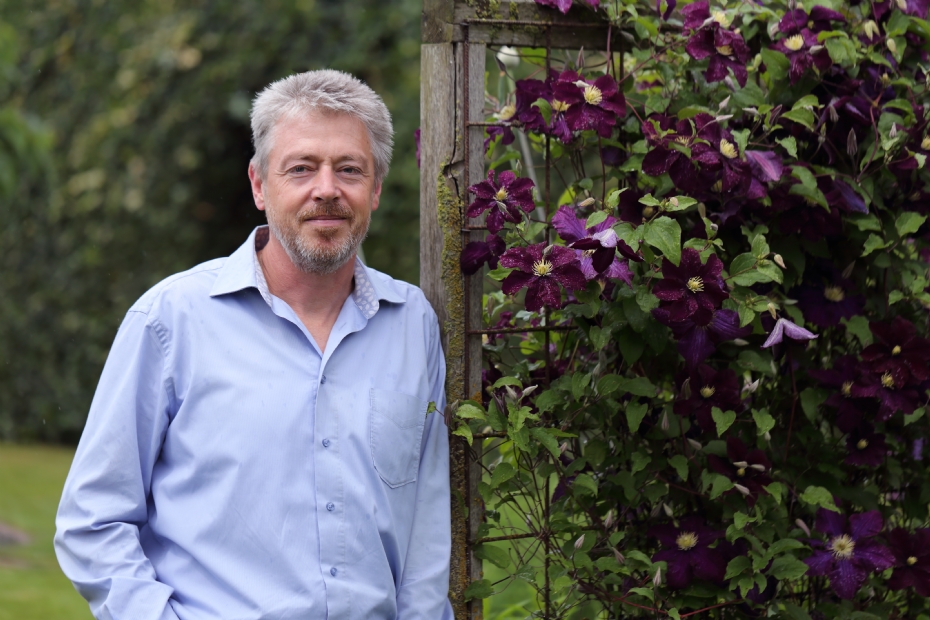Innogreen adds two Skal-certified products to its range |
|
|
|
|
 |
| 147 sec |
Peat-free potting soil Green-Start and liquid fertilizer Greenfields with NPK 7-2-3
Recently, two products from Innogreen were added to the Skal-certified fertilizers, soil improvers, potting soils and substrates offered by this innovator in green solutions. These are the peat-free potting soil Green-Start and the liquid fertilizer Greenfields NPK 7-2-3. With the certification, the products may be used for the organic cultivation of (perennial) plants and organic food (BIO/EKO production). Still, the certification process did not go entirely smoothly.
"We worked on the peat-free potting mix Green-Start for a long time," says Innogreen founder Ruud Snijders. "But we have a clear mission: we want to create green solutions that are good for now and for the future. That means reducing artificial fertilizers and pesticides and no longer sacrificing nature. Of course, what we do is just a drop in the ocean, but if no one takes action, nothing will change."
|
|
"There are many more natural materials available than those listed on the European input list for organic cultivation."
| |
|
Difficult maneuvering
Besides this mission, market demand for peat-free potting soil kept increasing. Green-Start meets that demand; it consists of various natural materials, organic fertilizers and microorganisms. "It went through a long testing period, but was initially rejected by Skal," says Snijders. "The mix contained a grass fiber derived from cow manure. Although a natural material, this grass fiber isn't on the European input list and is thus classified under animal fertilizers. By that reasoning, many more products wouldn't belong on the list. Yet as manufacturers, we can use many more natural materials than are listed. That makes it difficult to maneuver."
|
|
"They want to grow organically, but not always Skal-certified."
| |
|
 | | Ruud Snijders |
|
|
Skal as a limiting factor
Snijders wasn't discouraged by Skal and adjusted the formula. But according to him, it wasn't necessary. "I have to pay for a product evaluation by the FiBL research institute, which then conducts an audit with Skal. Skal ultimately decides whether or not to approve it. If approved, you pay an annual fee to keep the product on the list. And if you consider how few organic growers are certified by Skal in the Netherlands—well, it's a small group. The costs involved in developing and marketing products are high. Still, I feel very committed to our organic growers. Fortunately, many non-Skal-certified businesses also use our products. Precisely because Skal is so strict and inflexible, some growers want to work organically without being Skal-certified. In that sense, Skal is a limiting factor for the growth of the organic sector. If they were more flexible, more growers would opt in. But Skal is not there to promote organic farming; they're the regulator. Perhaps the government could do more to support the organic sector."
|
|
"Whether something works or not should be determined in practice."
| |
|
Healthy and balanced growth
Snijders explains that a similar story applies to the liquid fertilizer Greenfields. "We already had the 100 percent organic fertilizer, but without that Skal label, organic growers couldn't use it. So we adjusted the composition to an NPK ratio of 7-2-3. Fortunately, this process went more smoothly than with Green-Start." According to Innogreen, the fertilizer is suitable for all crops and supports healthy and balanced growth.
So how is something like this developed? Snijders: "I come up with all kinds of ideas and develop them with a network of experts, but whether something is good or not has to be proven in practice. That's why friendly growers and landscapers test the products extensively for further fine-tuning."
|
|
"That's something I would definitely advocate for."
| |
|
Focus on the soil
So this testing doesn't happen on trial plots but in real-world practice. And that's quite complex, as different regions have different conditions. For Innogreen, three things are important: our products must be as sustainable and organic as possible, we want to deliver quality, and our products come with tailored advice. That also means looking at what each customer grows. For example, acid-loving plants can't be cultivated in peat-free soil. And in which growth phase is the crop? A growing plant needs more nutrients than a plant in dormancy. While that may seem obvious, we still don't pay enough attention to the soil. A lot is written and said about it, but too little is done in practice. I would really advocate for more attention to the soil."
|
|
"Growers and landscapers test the products extensively in practice for further fine-tuning."
| |
|
This article was originally published on 17 June 2025 on the website of Stad + Groen.
| LOG IN
with your email address to respond.
|
|
|
| There are no comments yet. |
|